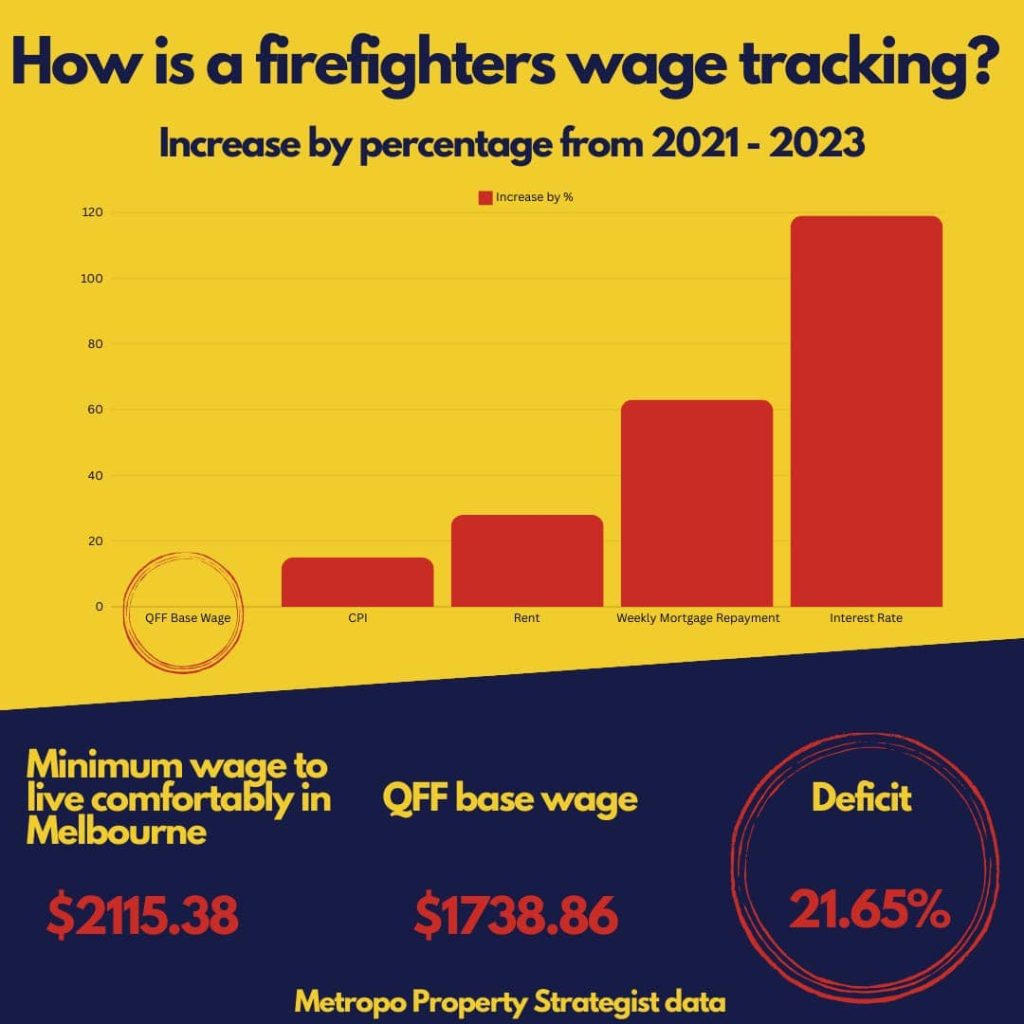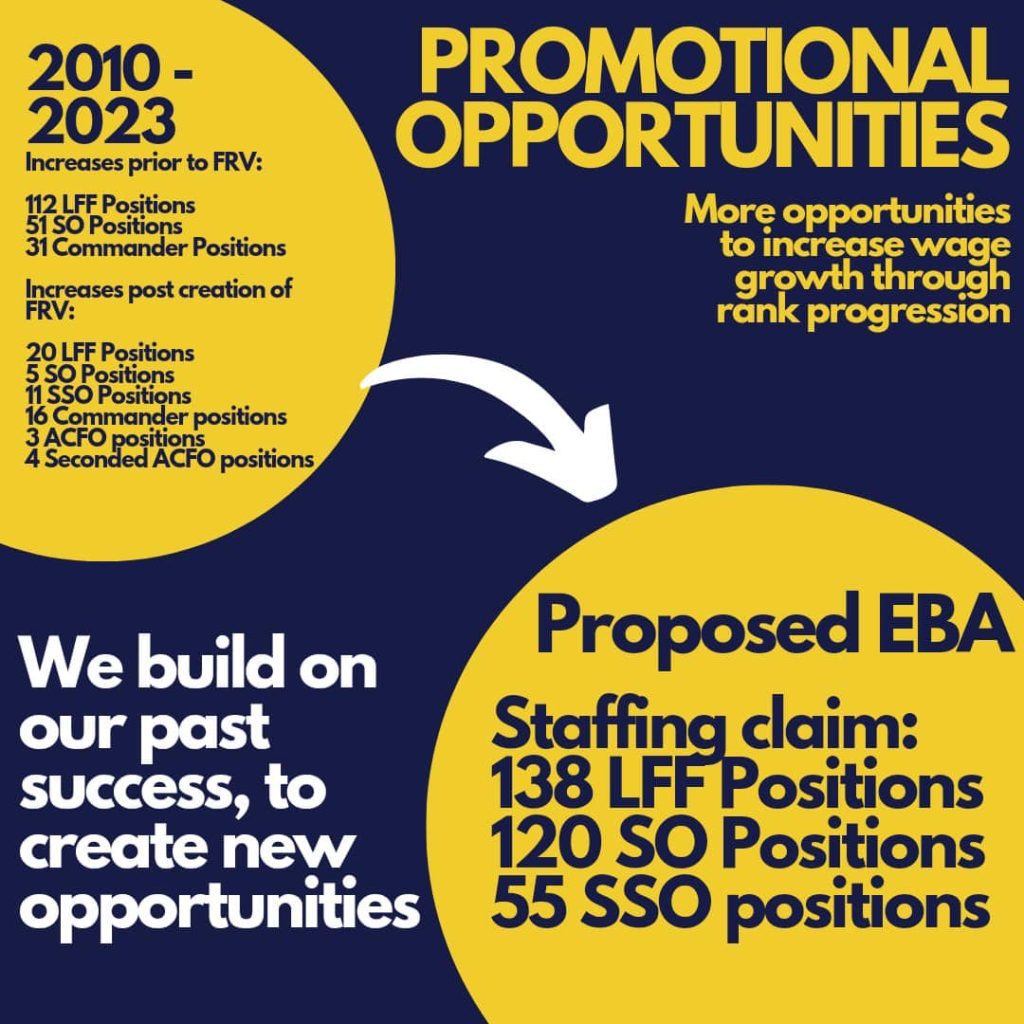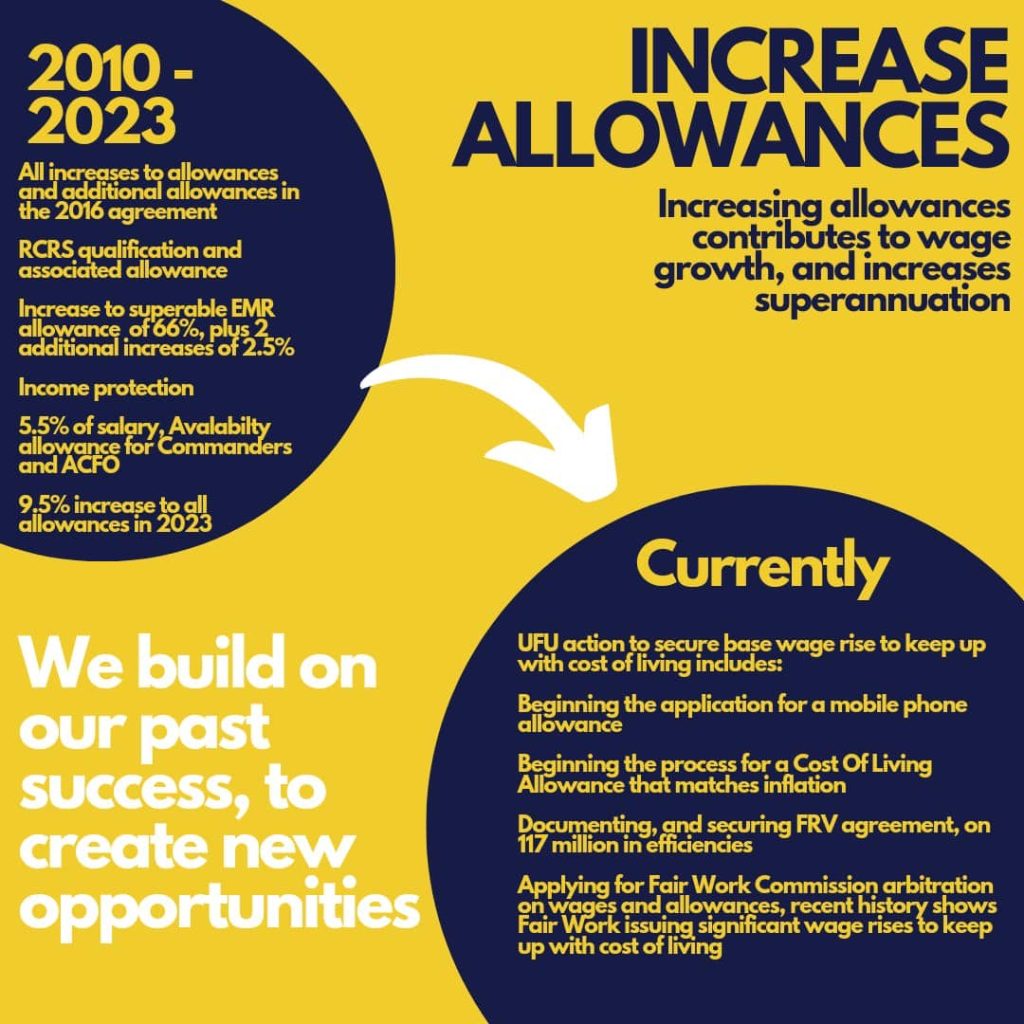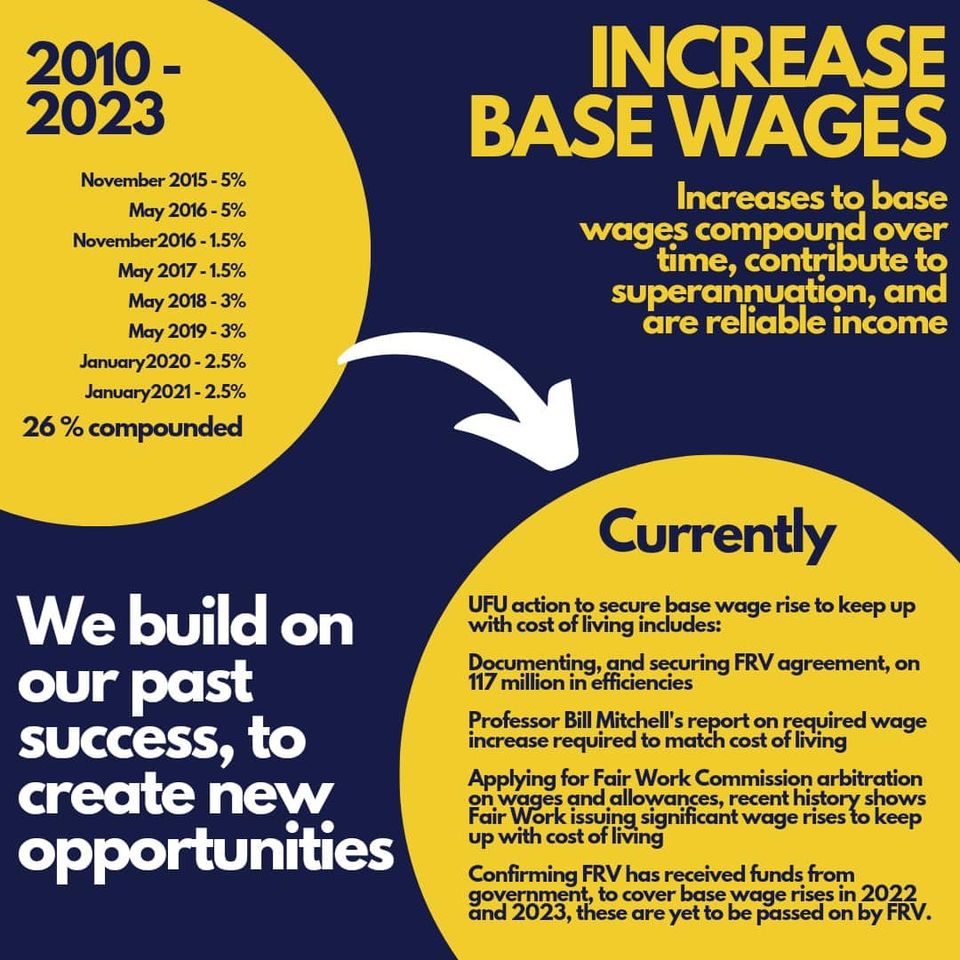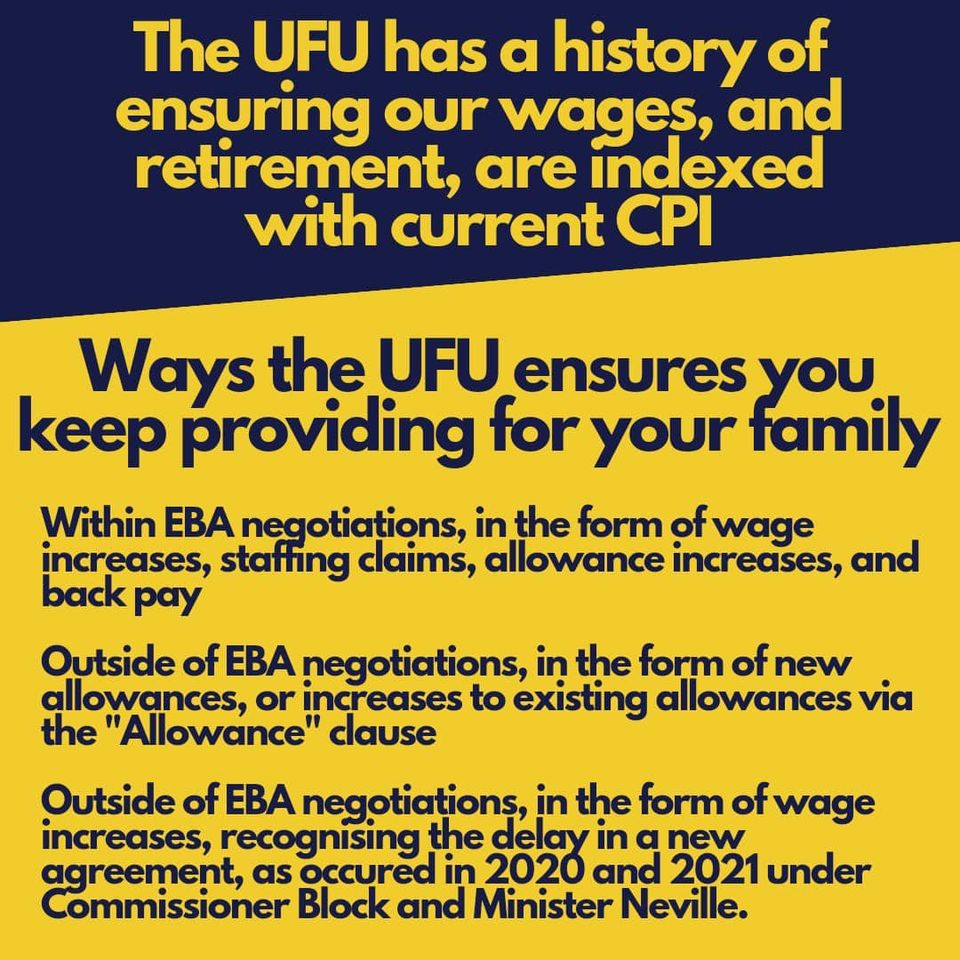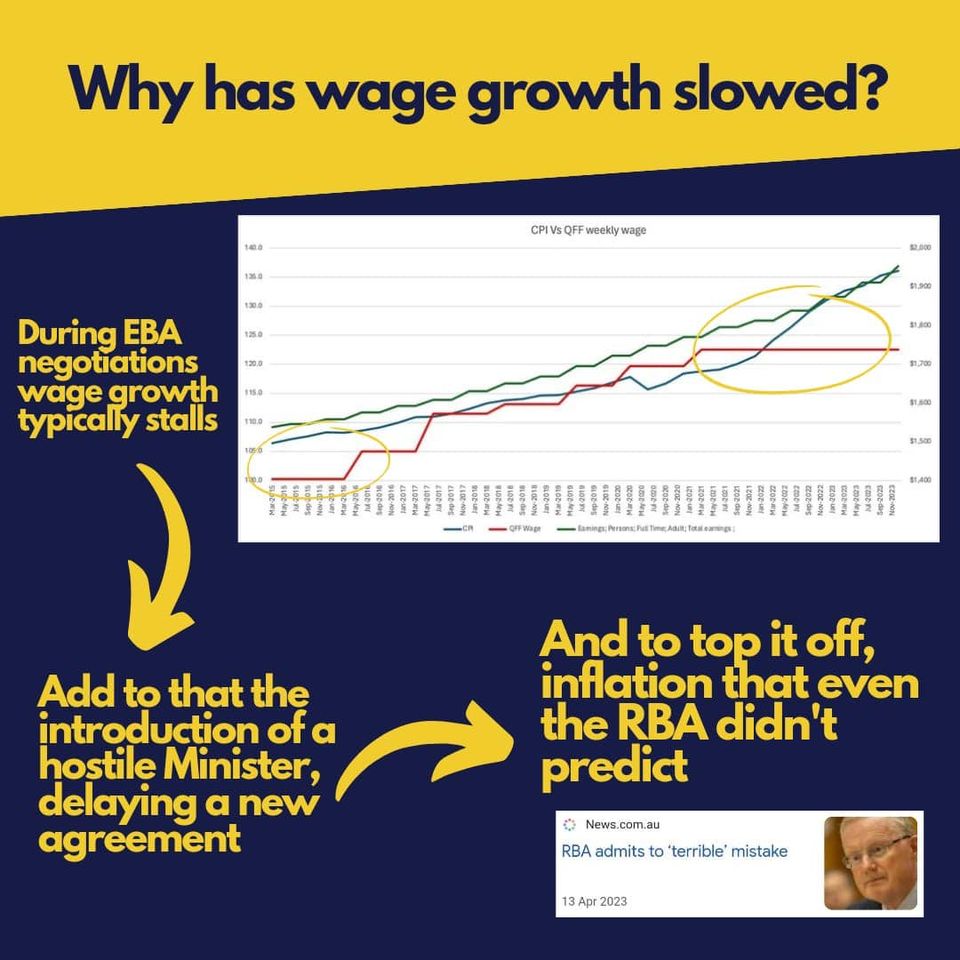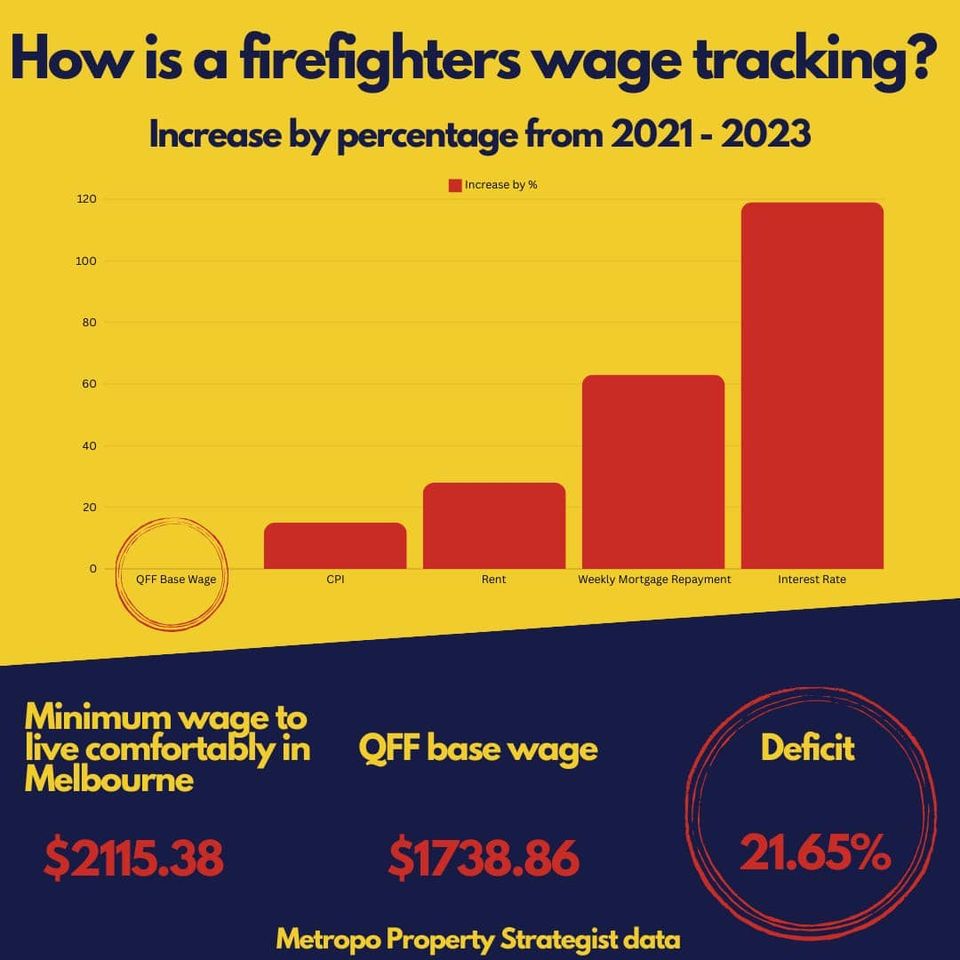How are firefighters’ wages tracking in the current economic climate?
The cost of everything has been rising in recent years, and we are all aware that we have not received a wage increase to keep pace. A recent report by Metropo indicated that a person living in Melbourne needs a minimum salary of $110,000 per year to live comfortably. The UFU believes that firefighters and their families deserve to live comfortably. We all know that recalls, overtime, and even bonuses are not guaranteed, and the only solution to keep up with inflation is through base wage increases, allowance increases, or promotions.
Why has our wage growth slowed?
Typically, during EBA negotiations, wage growth will freeze. This is due to the nature of ongoing negotiations; without an enforceable agreement, the employer usually will not increase wages. As you can see in the graph and also in Professor Bill Mitchell’s report from Bulletin #131, a similar wage freeze occurred during the negotiations prior to 2016. Employers will often delay any wage increases as a way of putting pressure on a union to accept a worse agreement. FRV has demonstrated this tactic with their refusal to pass on the wage rise funds they received from the government. This is in direct contrast to their actions under our previous minister, Lisa Neville, who agreed to 2.5% increases in recognition of EBA delays.
Unfortunately, due to health issues, Minister Neville had to step down. We now have Minister Symes, a hostile minister who has led the attack on cancer laws, minimum staffing, our registration board, and has worked to delay a new EBA.
Another contributing factor has been unexpected inflation, fueled by multiple international events, that not even the Reserve Bank of Australia predicted.
All of this has combined into a situation where firefighters’ wages have fallen behind the cost of living.
The UFU has a history of ensuring that our wages and retirement benefits are indexed with the current CPI. Remember, increased superannuation is reliant on our base wage and superable allowances being increased. By building on past achievements, the UFU is working to raise our wages to help us provide for our families.
The main ways the UFU does this are:
1. Within EBA negotiations, in the form of wage increases, staffing claims, allowance increases, and back pay. Staffing claims create more opportunities for promotion, which in turn allows for increased wages for individuals who progress through the ranks.
2. Outside of EBA negotiations, in the form of new allowances or increases to existing allowances through the “Allowance” clause.
3. Outside of EBA negotiations, in the form of wage increases, recognising the delay in a new agreement, as occurred in 2020 and 2021 under Commissioner Block and Minister Neville.
